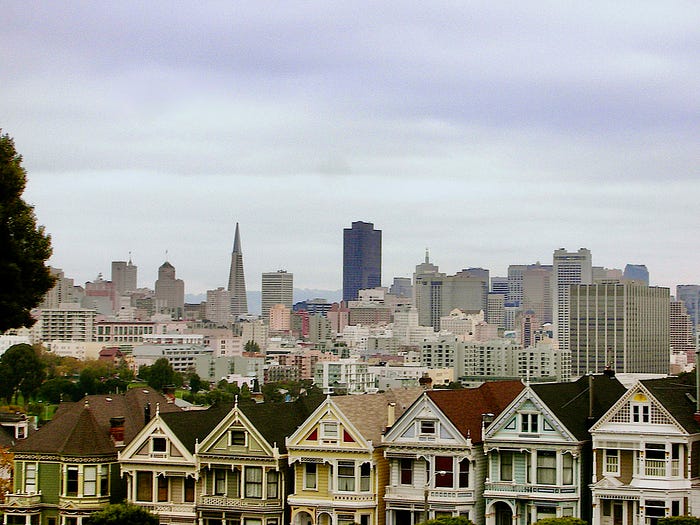San Francisco City Hall has come up with an ambitious plan to encourage construction and renovation companies to convert post-pandemic unused office space into housing. These are empty properties that stand very little chance of ever being occupied in a country where approximately one third of employees are still working from home and, most likely, will continue to do so in the foreseeable future.
The idea, in addition to taking advantage of underutilized assets, is to breathe new life into a city center that is dying on its feet after huge numbers of people refused to return to the office after lockdown. It is believed that the only way to revive these downtown areas is to create a resident population with very different needs from those of nine-to-five officer workers who tended to need only businesses such as restaurants, cafes or laundries, rather than the broad-spectrum neighbourhood commerce usual in residential areas.
The situation in the United States differs greatly from that in other countries, and fundamentally in those with tension in their labor market such as Spain. The battle between supporters of Distributed Work From Home (WFH) and Return To Office (RTO) is not particularly different: while the former claim that they can be more productive working mostly from home, without undergoing the torture of commuting and daily traffic jams, and instead going to the office only occasionally for meetings with clients or otherwise. In other words, the office is not for work, but for socializing. In contrast RTO supporters cling to ideas that have already been proved wrong, such as "innovation is driven through contact with other people," or "you can't develop a corporate culture if we don't see each other", which is basically about control and micromanagement.
The battle lines are drawn, and the standoff in the United States looks set to continue for some time. It's a very different situation to Spain, with its dysfunctional labor market clearly biased towards supply, in which companies are able to force their workers back to the office simply by threatening to put them on the street if they do not. In this context, workers, instead of acting like their American counterparts, who are not afraid to leave their jobs because they know that they will easily find others, are forced to accept the conditions of their employer.
The result is companies that soon return to their pre-pandemic way of doing things, having failed to learn anything, and therefore don't innovate regarding talent management, flexibility or work methodologies. Companies that instead of buying skills, buy their employees' time, run by micromanagers. A post-industrial, factory culture that should never really have existed, but that many are determined to perpetuate. The result? Companies do not evolve, cannot attract talent, and that soon suffer a competitive disadvantage that becomes, by aggregation, a comparative disadvantage for the country.
This is an important problem, which countries like Germany, Australia or the Netherlands are trying to avoid by making it a legal right for people to be able to work from home. Why? Because they understand that adapting to the technological context drives innovation, and that denying and repressing it is negative for the competitiveness of companies. We will see how successful these fossilized companies are in stopping distributed work and how they soon fall behind. And if this happens in an entire country, the effect will be even more worrying.
(En español, aquí)


